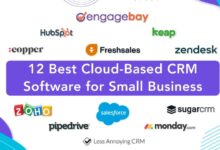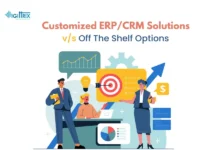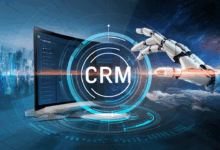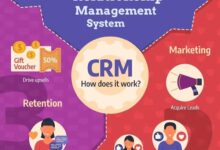Best CRM For Real Estate Agents: Choosing The Right Platform
Best CRM for Real Estate Agents delves into the essential features and tools that can revolutionize how real estate professionals manage their business, providing a comprehensive guide to selecting the perfect CRM platform.
From data analytics to workflow management, this article explores the key factors that define the best CRM for real estate agents, offering valuable insights for optimizing client relationships and maximizing efficiency.
Importance of CRM for Real Estate Agents
In the competitive world of real estate, having a reliable Customer Relationship Management (CRM) system is essential for agents to effectively manage their clients, properties, and transactions. Let’s delve into the key features and benefits of CRM systems for real estate agents.
Key Features of CRM Systems for Real Estate Agents
- Centralized Database: CRM systems allow agents to store all client information, property details, and transaction history in one centralized database, making it easily accessible and organized.
- Automated Communication: With CRM, agents can automate emails, follow-ups, and reminders, ensuring timely communication with clients and prospects without missing any important interactions.
- Lead Management: CRM systems help agents track and manage leads effectively, from initial contact to conversion, by prioritizing leads, assigning tasks, and monitoring progress.
- Task Management: Agents can create tasks, set reminders, and schedule appointments within the CRM system, enabling better time management and efficiency in daily operations.
CRM Software vs. Traditional Methods in Real Estate Management
- Efficiency: CRM software streamlines processes, saves time, and reduces manual tasks compared to traditional methods, allowing agents to focus more on building client relationships.
- Accuracy: CRM systems provide accurate and up-to-date information, minimizing errors and ensuring data integrity, which is crucial in real estate transactions.
- Scalability: CRM software can scale with the growth of the real estate business, accommodating more clients, properties, and transactions without compromising efficiency.
- Analytics: CRM systems offer data analytics tools that provide valuable insights into client behavior, market trends, and performance metrics, empowering agents to make informed decisions.
Role of Data Analytics in CRM for Real Estate Agents
- Targeted Marketing: By analyzing client data and preferences, agents can create targeted marketing campaigns that resonate with their audience, increasing lead generation and conversion rates.
- Performance Tracking: Data analytics in CRM enables agents to track their performance, monitor key metrics, and identify areas for improvement, leading to more effective strategies and better results.
- Predictive Analytics: CRM systems can use predictive analytics to forecast market trends, identify potential opportunities, and optimize decision-making, giving agents a competitive edge in the real estate market.
Features to Look for in a CRM for Real Estate Agents
When choosing a CRM system for real estate agents, it’s crucial to consider key features that are tailored to the industry’s specific needs. Here are some essential features to look for when selecting a CRM platform:
Lead Management and Tracking
- Robust lead capture tools to gather information from various sources.
- Automated lead assignment to ensure timely follow-ups.
- Lead tracking capabilities to monitor the progress of each lead through the sales funnel.
Customizable Dashboards and Reports
- Ability to create custom dashboards to track key metrics and performance indicators.
- Generate detailed reports on sales activities, lead conversion rates, and agent performance.
- Customizable report templates to suit the specific reporting needs of real estate agents.
Integration Capabilities
- Seamless integration with other real estate tools such as MLS listings, email marketing platforms, and virtual tour software.
- Syncing with popular third-party apps like Google Workspace, Outlook, and social media platforms.
- API access for developers to create custom integrations with proprietary tools.
Mobile Accessibility
- Mobile-responsive design for access on smartphones and tablets while on the go.
- Native mobile apps for iOS and Android for easy access to CRM functionalities.
- Offline access capabilities to update information even without an internet connection.
Automation and Workflow Management
- Automate repetitive tasks such as email follow-ups, appointment scheduling, and lead nurturing.
- Workflow automation to streamline processes and ensure consistency in client interactions.
- Trigger-based automation for timely responses to client inquiries and requests.
Personalization and Customization
- Ability to personalize communication with clients through custom email templates and drip campaigns.
- Customizable fields and tags to segment contacts based on specific criteria.
- Personalized client portals for a tailored experience and enhanced customer service.
Integration Capabilities with Existing Real Estate Tools
When it comes to CRM systems for real estate agents, integration capabilities with existing real estate tools play a crucial role in streamlining processes and maximizing efficiency.
Examples of Popular Real Estate Tools for Integration
- MLS (Multiple Listing Service) Software: Integration with MLS software allows real estate agents to access up-to-date property listings, market data, and client information directly from their CRM.
- Email Marketing Platforms: Seamless integration with email marketing tools enables agents to send targeted campaigns, newsletters, and follow-ups to leads and clients within the CRM platform.
- Virtual Tour Software: Integration with virtual tour tools allows agents to showcase properties online, enhancing the property viewing experience for clients directly through the CRM.
Impact of Integrated Systems on Workflow Efficiency
Integrated CRM systems provide real estate agents with a centralized platform where they can access all necessary tools and information in one place. This eliminates the need to switch between multiple applications, saving time and reducing the risk of errors. By integrating with key real estate tools, agents can streamline their workflows, automate tasks, and provide a seamless experience for both themselves and their clients.
Automation and Workflow Management
Automation plays a crucial role in CRM systems for real estate agents, streamlining various processes and optimizing efficiency. One key aspect where automation shines is in lead management and follow-ups. By automating these tasks, agents can ensure timely responses and nurture leads effectively.
Benefits of Automation in CRM for Real Estate Agents
- Automated lead scoring and assignment can prioritize high-value leads for immediate attention.
- Automated email campaigns can engage leads and clients at the right time with personalized content.
- Automated appointment scheduling can save time and prevent double bookings.
Importance of Workflow Management in CRM for Real Estate Businesses
- Efficient workflow management ensures that tasks are organized and completed in a timely manner.
- Streamlining processes leads to improved productivity and better client service.
- Workflow automation reduces manual errors and ensures consistency in operations.
Personalized Automation for Nurturing Client Relationships
- Personalized automation allows agents to tailor interactions based on client preferences and behavior.
- Automated reminders for special occasions or personalized property recommendations can enhance client engagement.
- Automated feedback requests help agents understand client needs and preferences better.
Specific Automation Tools for CRM Systems in Real Estate
- AI-powered chatbots for instant customer support and lead qualification.
- Drip email campaigns for automated lead nurturing and engagement.
- Social media scheduling tools for automated posting and engagement.
Automated Reporting Capabilities for Performance Tracking
- Automated reports provide real-time insights into key performance metrics like conversion rates and ROI.
- Tracking trends and patterns through automated reporting helps agents make data-driven decisions.
- Customizable dashboards in CRM systems offer visual representations of performance data for easy analysis.
Customization Options for Real Estate Workflows
Customizable workflows play a crucial role in a CRM system for real estate agents, allowing them to tailor their processes according to their specific needs and preferences. This level of customization can significantly enhance productivity, efficiency, and client management within the real estate industry.
Importance of Customizable Workflows
- Customized workflows enable agents to streamline their tasks and prioritize activities based on individual requirements.
- Personalized workflows can help in creating a more personalized experience for clients, leading to increased satisfaction and loyalty.
- By adapting workflows to suit the unique needs of the business, agents can optimize their operations and improve overall performance.
Key Features of an Ideal CRM System
- Drag-and-drop interface for easy customization of workflows.
- Integration capabilities with existing tools and plugins to enhance workflow flexibility.
- Automated triggers and notifications to streamline workflow processes.
- Customizable templates for common real estate tasks such as lead management, property listings, and client communication.
Automated Workflows vs. Manual Workflows
- Automated workflows reduce manual tasks, save time, and minimize errors in workflow execution.
- Manual workflows offer more control and flexibility in handling unique situations but may be time-consuming and prone to human error.
Customizing Workflows in a CRM Platform
To customize workflows in a CRM platform designed for real estate professionals:
- Access the workflow customization tool within the CRM system.
- Define the stages of your workflow and set up triggers for each stage.
- Customize fields, notifications, and actions based on your specific requirements.
- Test the workflow to ensure it functions as intended before implementing it across your team.
Role of Analytics and Reporting
Analytics and reporting tools within customized workflows help real estate agents:
- Track key performance indicators (KPIs) to measure the effectiveness of workflows.
- Identify areas for improvement and optimize processes based on data-driven insights.
- Generate reports to assess the impact of customized workflows on business performance and client satisfaction.
Mobile Accessibility and On-the-Go Features
Mobile accessibility is crucial in a CRM system for real estate agents as it allows them to stay connected and productive while on the move. With the increasing trend of remote work and the need for flexibility, having access to important client information and tasks on mobile devices is essential for agents to effectively manage their business.
Key On-the-Go Features
- Real-time updates: Agents can access and update client information, property details, and communication logs instantly, ensuring that they have the latest data at their fingertips.
- Task management: The ability to create, assign, and track tasks on the go helps agents stay organized and on top of their workload, even when they are not in the office.
- Mobile calendar integration: Syncing appointments, meetings, and deadlines with mobile calendars ensures that agents never miss important events and can manage their schedule efficiently.
- Map integration: Integration with mapping tools allows agents to navigate to property locations easily, plan routes for showings, and provide accurate directions to clients.
By having access to these on-the-go features, real estate agents can work efficiently from anywhere, whether they are meeting clients, attending open houses, or traveling between properties. Staying connected to the CRM system on mobile devices enables agents to provide better service to their clients, make informed decisions, and manage their business effectively.
Data Security and Privacy Measures
Data security is of paramount importance in CRM systems for real estate professionals, as they deal with sensitive client information on a daily basis. Ensuring the privacy and protection of this data is crucial to maintain trust with clients and comply with regulations.
Encryption and Authentication Features
- Encryption plays a vital role in securing client details and transactions by encoding the information so that only authorized parties can access it.
- Two-factor authentication adds an extra layer of security by requiring users to provide two different authentication factors before gaining access to the CRM database.
Setting up Secure Firewall
- Setting up a secure firewall involves configuring network security settings to control incoming and outgoing traffic, thus safeguarding sensitive real estate data from unauthorized access.
Symmetric vs. Asymmetric Encryption Methods
- Symmetric encryption uses the same key for both encryption and decryption, which can be faster but may pose a higher risk if the key is compromised.
- Asymmetric encryption uses a pair of public and private keys for encryption and decryption, offering a higher level of security but potentially slower performance.
Regular Security Audits and Updates
- Regular security audits and updates are essential to identify and address any vulnerabilities in the CRM system, ensuring that data privacy is maintained and protected over time.
Reporting and Analytics Capabilities
Reporting and analytics play a crucial role in a CRM system for real estate agents, providing valuable insights that can help improve decision-making and overall business performance.
Data Insights for Informed Business Decisions
- By analyzing data, real estate agents can gain valuable insights into market trends, customer behavior, and performance metrics.
- These insights enable agents to make informed decisions, optimize strategies, and identify areas for improvement.
Benefits of Tracking Performance Metrics
- Tracking performance metrics through CRM analytics allows agents to measure the effectiveness of their marketing campaigns, lead generation efforts, and sales activities.
- Agents can identify high-performing strategies and areas that need improvement, leading to increased efficiency and success.
Setting Up Custom Reports
- To set up custom reports in a CRM system, agents can define the key metrics and data points they want to track.
- Agents can then create customized reports that provide a comprehensive view of their performance and progress towards their goals.
Key Performance Indicators (KPIs)
- Key performance indicators that real estate agents should track using CRM analytics include lead conversion rates, average deal size, lead response time, and agent productivity.
- Tracking these KPIs can help agents identify trends, measure success, and make data-driven decisions.
Improving Lead Generation and Conversion Rates
- CRM analytics can help real estate agents identify the most effective lead generation channels, target the right audience, and personalize their marketing efforts.
- By analyzing data on lead behavior and preferences, agents can optimize their conversion strategies and increase their conversion rates.
Utilizing Predictive Analytics
- Real estate agents can utilize predictive analytics in a CRM system to forecast market trends, identify potential leads, and optimize sales strategies.
- By analyzing historical data and patterns, agents can predict future outcomes and make proactive decisions to stay ahead of the competition.
Scalability and Growth Potential
Scalability is a crucial factor to consider when choosing a CRM system for real estate agents. It refers to the system’s ability to accommodate the growing needs of a business as it expands over time. A scalable CRM platform can grow with your real estate business, ensuring that you can continue to manage your clients, leads, and deals efficiently as your operations increase.
Adaptable Features
- Customizable Workflows: A scalable CRM system allows you to customize workflows to match the changing requirements of your real estate business. You can add new stages, fields, or actions as needed to adapt to your evolving processes.
- Flexible User Access: As your team grows, a scalable CRM should provide options to easily add new users, assign roles and permissions, and manage access to different features based on individual needs.
- Integration Capabilities: The ability to integrate with other real estate tools and software is essential for scalability. A CRM system that can connect with various platforms ensures seamless data flow and increased efficiency as your business expands.
Scalability in a CRM system allows real estate agents to handle a larger volume of transactions, leads, and clients without compromising on performance or data management.
Long-term Growth Impact
- Efficient Operations: A scalable CRM platform streamlines processes, reduces manual tasks, and improves overall efficiency, enabling real estate agents to focus on growth strategies rather than administrative work.
- Enhanced Customer Relationships: With a scalable CRM system, real estate agents can maintain personalized interactions with clients, even as their client base grows, leading to higher customer satisfaction and retention rates.
- Expansion Opportunities: Scalability enables real estate businesses to expand into new markets, target new demographics, and take on more listings without facing limitations in managing data or communication.
Training and Support Resources
Training and support resources are crucial for real estate agents utilizing a CRM system. Ongoing training and support are essential for successful CRM implementation, ensuring that agents can fully leverage the capabilities of the software to enhance their productivity and efficiency. Here are some key points to consider:
Available Training Resources
- Online Tutorials: Many CRM providers offer online tutorials and training videos to help real estate agents familiarize themselves with the software’s features and functionalities.
- Live Webinars: Interactive webinars conducted by CRM providers can provide in-depth training on specific aspects of the software and allow agents to ask questions in real-time.
- On-Site Training: Some CRM providers may offer on-site training sessions for real estate teams, providing personalized assistance and guidance tailored to their specific needs.
Importance of Ongoing Support
- Continuous Learning: Ongoing support ensures that real estate agents stay up-to-date with the latest features and updates of the CRM system, maximizing its potential for their business.
- Troubleshooting Assistance: Access to technical support and troubleshooting resources can help agents resolve any issues or challenges they encounter while using the CRM software.
- Optimizing Performance: Regular support and training sessions can help agents optimize their workflow processes and utilize the CRM system to its full capacity, leading to improved productivity and efficiency.
Examples of Training Programs
- One-on-One Coaching: Some CRM providers offer personalized one-on-one coaching sessions to guide real estate agents through the setup and customization of the software based on their unique requirements.
- Certification Programs: Certain CRM providers may have certification programs that allow agents to become certified experts in using the software, demonstrating their proficiency to clients and colleagues.
- Knowledge Base: Many CRM providers maintain a comprehensive knowledge base with articles, guides, and FAQs to help agents troubleshoot issues independently and expand their understanding of the software.
Customer Relationship Management Strategies
Effective customer relationship management (CRM) strategies are crucial for real estate agents to maintain strong client relationships and foster long-term connections with buyers and sellers. By leveraging CRM tools effectively, agents can nurture leads, engage with clients, and provide personalized services that cater to their individual needs and preferences.
Utilizing CRM Tools to Nurture Leads
One key strategy for real estate agents is to use CRM tools to nurture leads and convert them into potential clients. By tracking and analyzing client interactions, preferences, and behaviors, agents can tailor their communication and marketing efforts to provide relevant and timely information to prospects. This personalized approach helps build trust and credibility with potential clients, increasing the likelihood of conversion.
Engaging with Clients through CRM
CRM tools also play a crucial role in engaging with clients throughout the buying or selling process. Agents can use CRM systems to schedule follow-up communications, send personalized messages, and provide updates on listings or market trends. By staying in touch with clients and addressing their needs promptly, agents can enhance customer satisfaction and loyalty, leading to repeat business and referrals.
Building Long-Term Relationships with Buyers and Sellers
CRM is essential for real estate agents to build and maintain long-term relationships with buyers and sellers. By storing comprehensive client data, including preferences, transaction history, and communication logs, agents can personalize their interactions and offer tailored services that meet the unique needs of each client. This personalized approach fosters trust, loyalty, and satisfaction, leading to ongoing relationships that extend beyond individual transactions.
Industry-Specific CRM Solutions
Using industry-specific CRM solutions tailored for real estate agents can offer numerous benefits by optimizing lead management and automating follow-ups with potential clients. These specialized platforms are designed to address the unique needs and challenges faced by real estate professionals, ultimately streamlining their workflow and enhancing productivity.
Examples of Industry-Specific CRM Platforms
- Top Producer: Known for its robust lead management capabilities and advanced follow-up tools, Top Producer is a popular choice among real estate agents looking to efficiently nurture client relationships.
- Follow Up Boss: This CRM platform focuses on simplifying communication with leads and clients, offering features like automated lead distribution and real-time notifications to ensure timely follow-ups.
- Wise Agent: With a comprehensive set of tools for managing listings, contacts, and transactions, Wise Agent is a versatile CRM solution that caters to the specific needs of real estate professionals.
Addressing Unique Challenges
Industry-specific CRM features can effectively tackle the distinct challenges faced by real estate agents, such as managing multiple property listings, coordinating open houses, and tracking client preferences efficiently. By providing tailored functionalities like automated listing updates, open house scheduling tools, and personalized client profiles, these platforms empower agents to deliver exceptional service and drive successful transactions.
Cost-Effective CRM Options
When it comes to small real estate agencies, finding a cost-effective CRM solution is crucial for managing client relationships efficiently while keeping expenses in check. Let’s explore three CRM options tailored for small real estate businesses that offer a balance between affordability and essential features.
1. CRM Provider A
- Pricing Plans: CRM Provider A offers a basic plan starting at $20 per user per month, with additional features such as lead management, contact tracking, and email integration available in higher-tier plans.
- Key Features: The basic plan includes essential CRM functionalities like contact management and task tracking, while the higher-tier plans offer advanced features like marketing automation and reporting tools.
- Customer Support: CRM Provider A provides 24/7 customer support via phone, email, and live chat for all subscription levels.
- Scalability: The CRM system allows for easy scalability as the business grows, with the option to upgrade plans to access more features and storage.
2. CRM Provider B
- Pricing Plans: CRM Provider B offers a free plan for up to 5 users, with paid plans starting at $15 per user per month for additional features like pipeline management and customization options.
- Key Features: The free plan includes basic CRM functionalities, while the paid plans unlock advanced features such as workflow automation and third-party integrations.
- Customer Support: CRM Provider B offers email support for free plan users and 24/7 phone support for paid plan subscribers.
- Scalability: The CRM system allows for seamless scalability, with the ability to add more users and upgrade plans as needed to accommodate business growth.
3. CRM Provider C
- Pricing Plans: CRM Provider C offers a tiered pricing structure starting at $10 per user per month, with features like contact segmentation, email campaigns, and analytics available in higher-priced plans.
- Key Features: The entry-level plan includes basic CRM tools, while the premium plans offer advanced marketing automation features and in-depth reporting capabilities.
- Customer Support: CRM Provider C provides email and chat support during business hours for all subscription levels, with phone support available for premium plan users.
- Scalability: The CRM platform is designed to grow with the business, allowing users to upgrade plans to access more features and storage space as needed.
Client Communication and Follow-Up Tools
Effective client communication is crucial for real estate agents to build strong relationships with their clients and provide exceptional service. A CRM with robust client communication features can streamline communication processes, track interactions, and ensure that no client inquiries or messages fall through the cracks. Additionally, follow-up tools can help agents stay in touch with clients at every stage of the buying or selling process, fostering trust and transparency.
Importance of Client Communication Features
Client communication features in a CRM allow agents to centralize all client interactions, including emails, calls, and messages, in one place. This organized approach ensures that agents can respond promptly to client inquiries, provide updates on property listings, and schedule appointments efficiently. By maintaining clear and consistent communication, agents can build trust with clients and enhance their overall experience.
Follow-Up Tools for Client Engagement
Follow-up tools in a CRM enable agents to set reminders for follow-up calls, emails, or meetings with clients. This proactive approach helps agents stay engaged with clients throughout the buying or selling process, addressing any concerns or questions promptly. By keeping clients informed and involved, agents can increase client satisfaction and loyalty, leading to potential referrals and repeat business.
Case Studies and Success Stories
Real estate agents all over the world have seen significant improvements in their business operations and client relationships after implementing CRM systems. These tools have become essential in streamlining processes, increasing productivity, and enhancing customer satisfaction. Let’s explore some real-life examples of how CRM systems have benefited real estate agents.
Increased Productivity and Efficiency
- One real estate agent saw a 30% increase in closed deals within the first month of using a CRM system. By automating tasks and managing leads more effectively, they were able to focus on building relationships with clients and closing more sales.
- Another agent reported a 50% reduction in administrative tasks after integrating a CRM tool into their workflow. This allowed them to spend more time prospecting, following up with leads, and providing personalized service to clients.
Improved Client Relationships
- A successful real estate team shared how they used CRM data to personalize their interactions with clients. By tracking preferences, past interactions, and feedback, they were able to offer tailored recommendations and create a more personalized experience for each client.
- One agent shared their success story of using CRM analytics to identify trends in client behavior and preferences. By understanding their clients better, they were able to anticipate their needs, provide relevant listings, and ultimately close more deals.
Ending Remarks
In conclusion, the quest for the best CRM for real estate agents involves careful consideration of integration capabilities, customization options, and scalability to ensure long-term success in the competitive real estate industry. By leveraging the right CRM platform, agents can streamline operations, enhance client communication, and drive business growth effectively.




